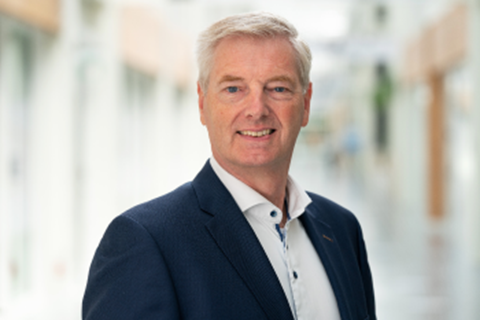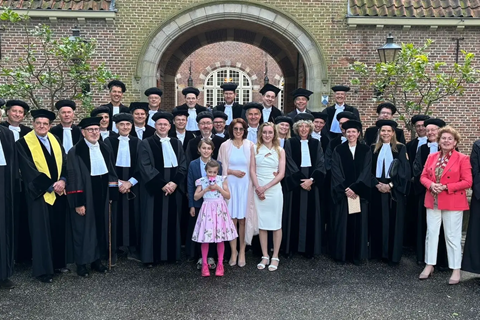- Home
- Faculty and research
- Academic activities
Academic activities
Opening of the Academic Year
All universities open their academic year with a gathering of professors and guests. Often held on the first or second Monday in September, it is an opportunity to announce the plans for the coming year. At Nyenrode, it is the custom to invite a keynote speaker to give a lecture after which the rector magnificus officiates the actual opening of the academic year.
Graduation
Most degree programs conclude with a festive graduation ceremony. At many of the programs, all the graduates of one year receive their degree certificates at the same time, while others have several award ceremonies per year. Students who have completed one of Nyenrode’s intensive open (executive education) programs do not receive a degree certificate but a specific Nyenrode certificate.
Promotion
PhD students are required to write a dissertation to complete their doctoral research. This dissertation contains all research results and conclusions. To earn the doctoral degree, each doctoral student must defend his or her dissertation before a special committee. View all dissertations here.
Emeritus status
When a professor retires, he or she is granted emeritus status. Many professors with emeritus status remain associated with their university, as they still supervise some PhD students or provide guest lectures, for example. It is customary for a retiring professor to deliver a valedictory lecture. Previous valedictory lectures can be found here.
Oration
The oration, also called the inaugural lecture, is a speech or lecture given by a professor when he or she is newly appointed. It is customary to hold an oration within a maximum of two years of being appointed as a professor.
During the oration, the professor often tells something about the research his or her chair has made possible or what he or she plans to do in the future. Previous orations can be found here.
Dies Natalis
The Dies Natalis, the birthday of Nyenrode Business University, is celebrated on November 20, the day the university was founded in 1946.
Once every five years we celebrate this extra during the lustrum.
Honorary doctorates
An honorary doctorate is a doctorate awarded to persons who have made exceptional contributions to science, although that work is not recorded in a doctoral dissertation. Sometimes, someone is awarded an honorary doctorate for non-academic feats, such as political or social relevant achievements.
Academic Brown Bag Presentation
During an informal lunch or online via a Teams session, our faculty members, as well as external researchers, share their research projects with each other. These Academic Brow Bag presentations take place every month. Read more about them here.
Contact

News

'Those who embrace ESG fuel innovation'
Research |
June 14 2024




